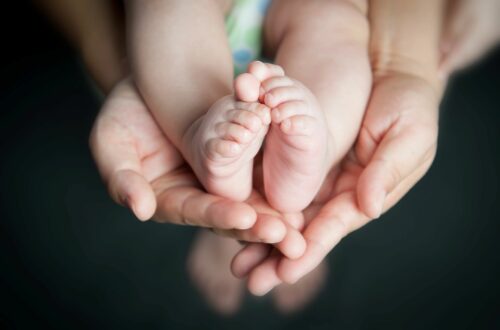My house has parts–walls, foundations, windows, etc–and there are things that are inside my house–children, saucepans, guitars, etc. Being inside my house does not entail being part of my house. But there are boundary cases: Are my curtains or appliances part of the house or merely contained within the house? If they are inside my house and not part of the house itself, then I can take them when I leave the house. If, on the other hand, they are part of the house, then I should not remove them when I leave.
Recently, in response to a question I posed about abortion, someone wrote this:
When the fetus is still within the mother it is part of her body. Terminating is therefore her choice. After it is born it is no longer part of her body and therefore not her choice… Surely women can be trusted to make decisions about their bodies on their own, just as men are (do you see anyone trying to make smoking illegal?). The US government has no right, in any situation, to force a woman to give birth OR not to give birth–it is that simple.
I’m going to presume that by ‘choice’ the writer means that the decision to terminate is a morally justified decision and not merely a choice. Given that, the argument is thus:
- If the baby is inside the mother, then it is part of her body
- If the baby is part of the mother’s body, then it is morally justifiable to terminate the baby
- The baby is inside the woman
- Therefore, it is morally justifiable to terminate the baby
Let us move on to (1), the more pressing question: is a baby a part of the woman’s body or merely within the woman’s body? There is a distinction between being inside something and being part of something as my little house illustration shows. But there are boundary cases in respect to the house and so there might be boundary questions when it comes to bodies. The question leads to a fill in the blank for the following material conditional:
For any x, x is part of a person’s body if and only if ….
The biological case for a baby being part of the mother is extremely weak. Perhaps there is a better case to be made from a different discipline. So, let’s try metaphysics.
The metaphysical question is: what are the necessary and sufficient conditions for anything to be a part of anything? How one views parts is firstly a matter of what one takes to be the basic make up of an object. There are at least two opposing views when it comes to objects. The first, atomism, says that everything that exists is a complex of simples, a collection of simple entities that have no parts combined in such a way as to form what we think of as objects, tables, rocks, leopards etc. On this view, it is common to suggest that the only property bearers in question are the simples. Tables and such are not real; only the atoms are real. If this is how we take it, then there are simply no parts. There are only whole atoms. But then there are no babies, no moms.
The second view, universalism, says that the most basic of objects is any conjunction of two entities over which we have a description. A shoe is an object not because of its combination of atoms but because of the descriptive and cognitive content of the concept of ‘shoe’. On this view, the conjunction of my shoe and Donald Trump’s hair is also an object. If follows that on this view the baby and the mother is an object and so is the baby and the treehouse in the bottom of my garden. If so, then the baby in that woman’s womb and my body is an object.
Now, one might object to both these views and attempt to construct a third view according to which what is more fundamental than either atoms or conjuncts are kinds. According to this view objects are what they are in virtue of the kind of thing they are. The most obvious kind in question is human kind. Is the baby a kind of human being? Surely, yes. It’s not a kind of table, or poached egg. But what kind of thing is a human being? Again, the most plausible answer is that human beings are kinds of persons. An angel is a kind of person. God is a kind of person. So am I. I am a human being, therefore, I am a kind of person. And persons are not the kinds of things you abort. So, either the baby is human or it is not. It is obviously human. So, it is a kind of person. And persons are entities to which we owe a duty – not to kill them.
Most importantly, the baby is not a part of the woman’s body if the baby is a human being. If a baby is a human being, then there are two human beings – the mother and the baby. And if human beings are kinds of persons, then both should not be killed.
I conclude, therefore, that there is no good reason for think that a baby is a part of a mother until the baby is born. Being inside a woman does not entail being part of a woman. And if so, and if the baby is a human being, then, contrary to the argument above, the woman does not have the (moral) right to abort the baby.



